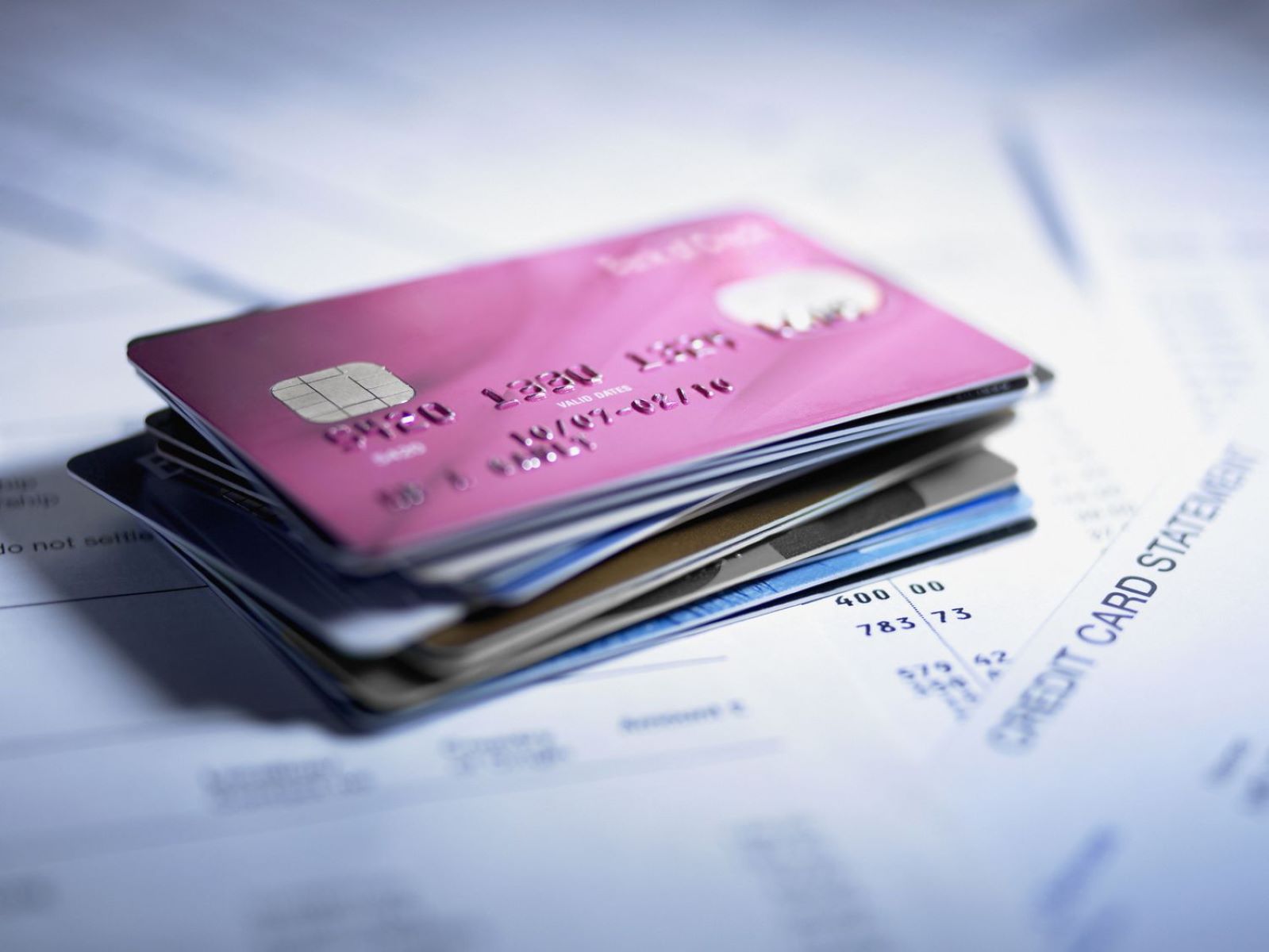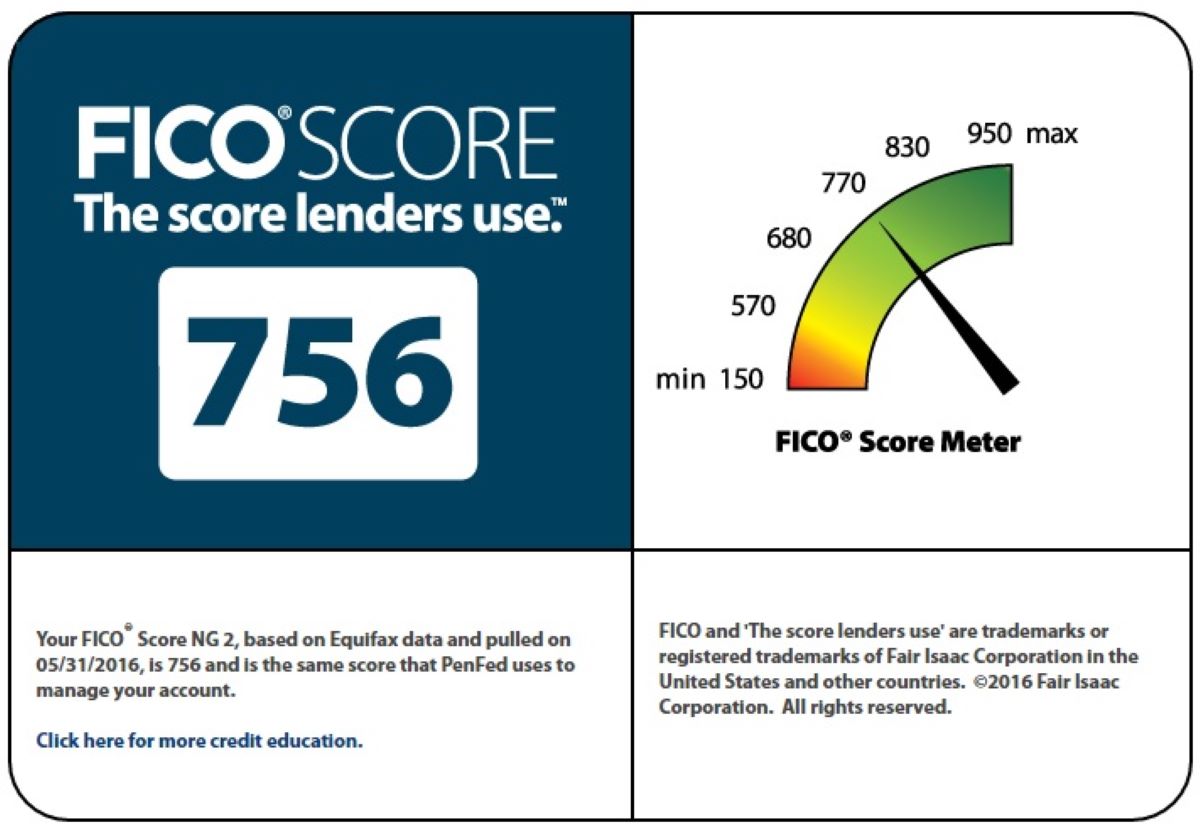Home>Finance>How To Build Business Credit Without Personal Credit


Finance
How To Build Business Credit Without Personal Credit
Modified: February 21, 2024
Learn how to establish business credit without relying on personal credit. Get tips and strategies to secure financing for your business. Boost your finance game now!
(Many of the links in this article redirect to a specific reviewed product. Your purchase of these products through affiliate links helps to generate commission for LiveWell, at no extra cost. Learn more)
Table of Contents
- Introduction
- Understanding Business Credit
- Benefits of Building Business Credit
- Factors to Consider
- Steps to Building Business Credit without Personal Credit
- Register Your Business
- Obtain an Employer Identification Number (EIN)
- Open a Business Bank Account
- Establish a Business Phone Number
- Obtain Business Licenses and Permits
- Establish a Positive Payment History with Suppliers and Vendors
- Apply for a Business Credit Card
- Take Advantage of Trade Credit
- Monitor and Maintain Your Business Credit
- Conclusion
Introduction
When it comes to starting or growing a business, having access to credit is essential. It allows you to invest in your business, cover expenses, and seize growth opportunities. However, many entrepreneurs face a common challenge – they don’t have a strong personal credit history to qualify for business financing. This is where building business credit without relying on personal credit can be a game-changer.
Business credit is a separate credit profile for your business that is distinct from your personal credit history. It represents the creditworthiness of your business and its ability to repay debts. By establishing and building solid business credit, you can unlock numerous benefits, including easier access to financing, higher credit limits, favorable terms, and stronger vendor relationships.
While building business credit might seem daunting, it’s entirely feasible if you follow the right steps. In this article, we will dive into the essential factors to consider and the actionable steps you can take to build business credit without relying on personal credit.
Understanding Business Credit
Before we delve into the process of building business credit without personal credit, it’s important to have a clear understanding of what business credit entails.
Business credit is a financial tool that allows lenders, suppliers, and other vendors to evaluate the creditworthiness of your business. It is typically represented by a credit score and a credit report, similar to personal credit. However, the criteria and factors considered in assessing business credit differ from personal credit.
Business credit scores can range from 0 to 100, with higher scores indicating a lower risk of default. These scores are calculated based on various factors, including the payment history of your business, the credit utilization ratio, the length of credit history, public records, and other financial data.
Building strong business credit is crucial for several reasons:
- Access to Financing: A good business credit score increases your chances of securing loans and credit lines for your business. Lenders are more likely to extend credit to businesses with a proven track record of timely payments and responsible credit usage.
- Favorable Terms: Having solid business credit enables you to negotiate better terms and conditions with lenders and suppliers. You may qualify for lower interest rates, higher credit limits, and longer repayment periods, which can significantly impact your cash flow and profitability.
- Vendor Relationships: Building strong business credit also helps foster positive relationships with suppliers and vendors. With good credit, you can negotiate better prices, discounts, and trade credit terms, giving you a competitive edge in the market.
- Separation of Personal and Business Finances: Establishing business credit allows you to separate your personal and business finances. This helps protect your personal assets in case your business faces financial difficulties or legal issues.
By understanding the importance of business credit and its benefits, you can take proactive steps to build and maintain a strong credit profile for your business. Now, let’s explore the factors to consider when building business credit without relying on personal credit.
Benefits of Building Business Credit
Building business credit without relying on personal credit opens up a world of opportunities for your business. Let’s explore some of the key benefits:
- Enhanced Funding Opportunities: By establishing and maintaining good business credit, you increase your chances of securing financing for your business. Lenders look at your creditworthiness to determine whether you are a reliable borrower. With strong business credit, you can access loans, lines of credit, and other funding options to fuel your business growth.
- Higher Credit Limits: Building business credit allows you to obtain higher credit limits. This can provide you with the flexibility to make larger purchases, invest in new equipment, or pursue expansion opportunities. Higher credit limits also help improve your business’s cash flow by providing a financial cushion during lean periods.
- Improved Vendor Relationships: Good business credit can help you establish stronger relationships with suppliers and vendors. They are more likely to offer favorable terms, such as longer payment terms or discounts, when they see that you have a solid credit history. This can result in cost savings for your business and strengthen your supply chain.
- Ability to Weather Financial Challenges: Building business credit provides you with a safety net during challenging times. If your business experiences cash flow issues or unexpected expenses, having access to credit can help you bridge the gap and keep operations running smoothly. It allows you to seize opportunities and navigate through economic downturns with greater ease.
- Separation of Personal and Business Finances: Establishing business credit helps to separate your personal and business finances. This separation is crucial for legal and liability reasons. It protects your personal assets and ensures that your business’s creditworthiness is evaluated independently.
- Establishes Business Credibility: A strong business credit profile enhances your business’s reputation and credibility. It demonstrates to potential partners, investors, and customers that your business is financially responsible and trustworthy. This can lead to more business opportunities and partnerships that can fuel further growth.
Overall, building business credit without relying on personal credit provides numerous benefits that can give your business a competitive edge. It improves your financial standing, opens up financing options, strengthens relationships with suppliers, and helps you navigate through challenges. Now, let’s explore the factors to consider as you embark on your journey to build business credit.
Factors to Consider
As you embark on the journey of building business credit without relying on personal credit, there are several key factors to consider:
- Business Structure: The structure of your business, whether it’s a sole proprietorship, partnership, LLC, or corporation, can impact how you establish business credit. Each structure has different requirements and considerations when it comes to obtaining credit and building a credit profile.
- Industry: Some industries are considered higher risk than others, which can affect your ability to obtain credit. For example, a startup in a high-risk industry may face more challenges in building credit compared to a well-established business in a low-risk industry.
- Business Size and Age: The size and age of your business can also play a role in building business credit. Lenders and credit agencies may consider factors such as annual revenue, number of employees, and years in operation when evaluating your creditworthiness.
- Financial Management: Proper financial management is crucial in building business credit. This includes maintaining accurate and up-to-date financial records, paying bills on time, and keeping your business finances separate from personal finances.
- Supplier Relationships: Building strong relationships with suppliers is essential for establishing trade credit and improving your credit profile. Timely payments and consistent business relationships can lead to favorable credit terms and references from suppliers, enhancing your business creditworthiness.
- Timely Payments: Making timely payments to creditors is one of the most important factors in building strong business credit. Whether it’s loans, credit cards, or trade credit, consistent on-time payments demonstrate your business’s reliability and financial responsibility.
- Credit Utilization: Credit utilization refers to the percentage of your available credit that you’re using. Maintaining a low credit utilization ratio demonstrates that your business is not overly reliant on credit and manages its finances responsibly. Aim to keep your credit utilization below 30% to build a positive credit profile.
- Public Records: Public records, such as bankruptcies, judgments, or liens, can severely impact your business credit. Avoiding legal and financial complications by fulfilling your obligations and maintaining a clean record is crucial in building and maintaining strong credit.
By considering these factors and being mindful of how they can impact your business credit journey, you can make informed decisions and take the necessary steps to build a solid credit profile. In the next section, we will outline the actionable steps you can follow to build business credit without relying on personal credit.
Steps to Building Business Credit without Personal Credit
Building business credit without relying on personal credit requires a systematic approach and consistent effort. Here are the steps you can follow to establish and build a strong business credit profile:
- Register Your Business: Start by registering your business as a legal entity. Choose a business structure that best suits your needs, such as a limited liability company (LLC) or corporation. This step is crucial as it separates your personal and business finances.
- Obtain an Employer Identification Number (EIN): Apply for an Employer Identification Number (EIN) from the Internal Revenue Service (IRS). This unique nine-digit number is used to identify your business for tax purposes, and it will be required when applying for business credit.
- Open a Business Bank Account: Open a dedicated business bank account to manage your business finances separately from personal finances. This will help build credibility and demonstrate your business’s financial stability.
- Establish a Business Phone Number: Obtain a dedicated business phone number to further establish the credibility of your business. This separates business communications from personal ones and provides a professional image.
- Obtain Business Licenses and Permits: Depending on your industry and location, ensure that you have the necessary licenses and permits to legally operate your business. Compliance with legal requirements enhances your business’s credibility and reputation.
- Establish a Positive Payment History with Suppliers and Vendors: Open accounts with suppliers and vendors who report payment history to business credit bureaus. Make consistent and timely payments to build a positive credit history.
- Apply for a Business Credit Card: Apply for a business credit card in your company’s name. Use it responsibly and make timely payments to build credit history. Choose a card that reports to business credit bureaus for maximum impact.
- Take Advantage of Trade Credit: Establish trade credit accounts with suppliers who offer terms that allow you to pay after receiving goods or services. Make timely payments to build positive trade credit references.
- Monitor and Maintain Your Business Credit: Regularly monitor your business credit report and score to identify and address any errors or negative information. Maintain a good credit utilization ratio, make timely payments, and keep business finances in order to ensure a strong credit profile.
By following these steps and consistently managing your business’s financial affairs, you can establish and build a strong credit profile without relying on personal credit. Remember that building business credit takes time, so patience and persistence are key. Now that you are equipped with the knowledge and steps involved, you can confidently embark on your journey to build business credit.
Register Your Business
Registering your business is the first crucial step in building business credit without relying on personal credit. Registering your business as a legal entity separates your personal and business finances and provides a solid foundation for establishing business credit.
The process of registering your business varies depending on your location and the type of business structure you choose. Here are the key steps to register your business:
- Choose a Business Structure: Determine the appropriate business structure for your company, such as a sole proprietorship, partnership, limited liability company (LLC), or corporation. Consider consulting with a legal or financial advisor to help you select the structure that best suits your needs.
- Business Name Search: Conduct a business name search to ensure that the name you want for your business is available and not already in use by another company in your jurisdiction. This step helps avoid legal conflicts and confusion in the future.
- File the Necessary Documents: Prepare and file the required documents to register your business. This typically includes articles of incorporation or articles of organization, depending on the business structure you choose. These documents outline the basic information about your business, such as its name, purpose, and ownership structure.
- Obtain a Federal Tax ID: Apply for an Employer Identification Number (EIN) from the Internal Revenue Service (IRS). Your EIN is a unique nine-digit number that identifies your business for tax purposes. It is necessary for opening bank accounts and applying for business credit.
- Register with Local and State Authorities: Depending on your location and industry, you may need to register your business with local and state authorities. This process ensures that your business complies with local regulations and requirements.
- Get the Required Licenses and Permits: Identify and obtain any necessary licenses and permits required to legally operate your business. This may include general business licenses, professional licenses, or industry-specific permits. Compliance with these requirements strengthens your business’s credibility.
Registering your business establishes its legal existence and provides the foundation for building business credit. It also enables you to separate your personal and business finances, which is crucial for protecting your personal assets and establishing the creditworthiness of your business. Once your business is registered, you can proceed to the next steps in building business credit without relying on personal credit.
Obtain an Employer Identification Number (EIN)
Obtaining an Employer Identification Number (EIN) is a crucial step in building business credit without relying on personal credit. An EIN is a unique nine-digit number assigned by the Internal Revenue Service (IRS) to identify your business for federal tax purposes. It is often referred to as a business tax ID.
Here’s what you need to know about obtaining an EIN:
- Why You Need an EIN: An EIN is necessary for several reasons. Firstly, it allows your business to be identified separately from your personal identity. Secondly, it is required when you open a business bank account. Additionally, many lenders and creditors require an EIN when applying for business credit.
- Who Needs an EIN: Most businesses are required to have an EIN. This includes sole proprietors who plan to hire employees, partnerships, corporations, and LLCs. Even if your business is not required to have an EIN, it is still recommended to obtain one for business credit purposes.
- How to Obtain an EIN: Obtaining an EIN is a straightforward process. You can apply for an EIN online through the IRS website, via mail, or by fax. The online application is the most convenient and efficient method, providing you with an EIN immediately upon completion.
- Information Required to Obtain an EIN: When applying for an EIN, you will need to provide information about your business, such as the legal name, address, and the responsible party’s social security number or individual taxpayer identification number. The responsible party is typically the owner, partner, or officer of the business.
- Using Your EIN: Once you have obtained an EIN, make sure to use it consistently and accurately in all business-related documents and transactions. This includes opening bank accounts, applying for business credit, filing taxes, and corresponding with the IRS or other government agencies.
Obtaining an EIN is a crucial step in building business credit. It allows your business to establish its own identity and ensures that all financial dealings are separate from personal credit. By obtaining an EIN, you provide a unique identifier to creditors, lenders, and suppliers, facilitating the establishment of business credit. Make sure to keep your EIN safe and use it responsibly in all your business activities.
Open a Business Bank Account
Opening a dedicated business bank account is an essential step in building business credit without relying on personal credit. A business bank account not only helps you manage your finances more effectively, but it also establishes a separate financial identity for your business.
Here are the key reasons why opening a business bank account is crucial:
- Separation of Personal and Business Finances: Creating a clear delineation between personal and business finances is essential for building business credit. A separate business bank account ensures that your personal and business transactions are distinct, making it easier to monitor and track your business’s financial health.
- Professionalism and Credibility: Having a dedicated business bank account adds a level of professionalism to your business. It shows clients, customers, and creditors that you take your business seriously and have a professional approach to your financial operations.
- Easier Financial Management: A business bank account simplifies financial management by providing tools and features tailored to business needs. You can easily track income and expenses, facilitate payroll processing, and generate reports for accounting and tax purposes. This streamlines your financial operations and makes it easier to analyze the financial health of your business.
- Facilitates Business Credit Applications: When you apply for business credit, lenders often require you to provide bank statements as part of the application process. Having a dedicated business bank account helps streamline this process and provides a clear record of your business’s financial activities for lenders to evaluate.
- Enhanced Financial Security: By using a separate business bank account, you add an extra layer of protection to your personal assets. In the event of legal issues or financial liabilities, your personal finances are shielded from potential risks associated with your business.
When opening a business bank account, consider the following steps:
- Research and Compare: Research different banks and financial institutions, comparing their offerings, fees, and services tailored to small businesses. Look for banks that are supportive of business owners and offer features that align with your business’s needs.
- Gather Required Documentation: Typically, you will need the following documents to open a business bank account: your business’s EIN, articles of incorporation or organization, business licenses and permits, and personal identification documents. Consult with your chosen bank to determine the specific requirements.
- Visit the Bank: Schedule an appointment with the chosen bank to open your business bank account. Bring all necessary documentation and be prepared to answer any additional questions the bank may have about your business.
- Deposit Funds: Once your account is open, make an initial deposit to activate the account. This deposit can vary depending on the bank and account type you choose. It’s advisable to maintain a sufficient balance to cover any account fees and demonstrate financial stability.
- Maintain Regular Transactions: Use your business bank account for all relevant business transactions, such as receiving payments from customers and clients, paying business expenses, and managing cash flow. Keeping consistent activity in your business bank account demonstrates financial activity to potential creditors.
Opening a business bank account is an important step in building business credit. It helps you separate personal and business finances, adds credibility to your business, and streamlines financial management. By establishing a dedicated business bank account, you lay the groundwork for building a strong business credit profile.
Establish a Business Phone Number
Establishing a dedicated business phone number is a critical step in building business credit without relying on personal credit. A business phone number not only presents a more professional image but also helps separate your business communications from personal ones, enhancing your business’s credibility.
Here are the key reasons why establishing a business phone number is crucial:
- Professionalism: A separate business phone number adds a level of professionalism to your business. It creates a clear distinction between your personal and business communications, showing clients, customers, and lenders that you take your business seriously and are committed to providing professional services.
- Separation of Personal and Business Communications: Having a distinct business phone number allows you to keep personal and business conversations separate, making it easier to manage and prioritize communications. This separation is crucial for maintaining good customer service and effectively handling business-related inquiries.
- Brand Identity: A business phone number contributes to your business’s brand identity. It provides consistency and recognition, making it easier for customers to connect with your business. A dedicated business phone number can also be customized with a memorable and relevant phone number or vanity number, further enhancing your brand’s recognition.
- Privacy: By using a separate business phone number, you can protect your personal privacy. Avoid sharing your personal phone number with clients or customers, as it can lead to potential privacy concerns or unwanted calls outside of business hours.
- Expanded Communication Features: Business phone services often offer a wide range of communication features such as call forwarding, voicemail, automated greetings, and call routing options. These features enable efficient call management, ensuring that you never miss important business calls and enhancing customer satisfaction.
When establishing a business phone number, consider the following options:
- Virtual Phone Numbers: Virtual phone services provide business phone numbers that can be accessed through various devices, including smartphones, tablets, and desktops. These services often come with additional features like call routing, voicemail, and call analytics.
- Traditional Landline Phone: If your business requires a physical office or store, you may consider obtaining a traditional landline phone from a telephone service provider. This option is suitable for businesses that primarily operate from a single location and have a consistent presence.
- VoIP (Voice over Internet Protocol) Phone Systems: VoIP phone systems use the internet to make and receive phone calls. They offer flexibility and scalability, as they can be used from various devices and can handle multiple phone lines efficiently.
- Toll-Free or Vanity Numbers: Consider obtaining a toll-free number or a memorable vanity number to enhance your business’s professional image and brand recognition. These numbers can be easily customized to align with your business name or industry.
Once you have established a business phone number, prominently display it on your website, business cards, and marketing materials to encourage customers and clients to reach out. By having a dedicated business phone number, you demonstrate professionalism, improve communication, and contribute to the overall credibility of your business, all of which are essential in building business credit.
Obtain Business Licenses and Permits
Obtaining the necessary licenses and permits for your business is an important step in building business credit without relying on personal credit. Business licenses and permits ensure that you are operating legally and comply with local, state, and federal regulations. Beyond compliance, having the proper licenses and permits enhances your business’s credibility and reputation, which can positively impact your ability to obtain credit.
Here are the key reasons why obtaining business licenses and permits is crucial:
- Legal Compliance: Different businesses require specific licenses and permits to operate legally in their industry and location. By obtaining the necessary licenses and permits, you ensure that your business is compliant with applicable laws and regulations. Failure to obtain required licenses and permits may result in fines, penalties, or even the closure of your business.
- Credibility and Trust: Having the proper licenses and permits demonstrates to lenders, creditors, and customers that your business operates ethically and transparently. It instills confidence in your business’s legitimacy and professionalism, which can positively impact your reputation and ability to obtain credit.
- Access to Specialized Financing: Some lenders may require specific licenses or permits to consider your business for certain financing options or favorable terms. For example, construction companies may need contractor licenses to qualify for construction loans. By having the necessary permits and licenses, you expand your borrowing options and may access specialized financing opportunities.
- Industry Compliance: Certain industries have regulatory requirements that businesses must meet to ensure public safety, protect consumers, or maintain industry standards. Obtaining the necessary licenses and permits demonstrates your commitment to industry compliance, which can be beneficial when seeking credit from lenders who specialize in your industry.
When obtaining business licenses and permits, the process can vary depending on your industry, location, and the specific requirements of your business. Here are some general steps to consider:
- Research: Research the licenses and permits required for your industry and location. Contact your local government offices, industry-specific regulatory bodies, or consult with a business advisor to understand the specific requirements.
- Prepare Documents: Gather the necessary documents and information needed to apply for the licenses and permits. This may include business registration documents, identification, insurance information, zoning approval, and more. Be sure to have all the required documentation ready before beginning the application process.
- Complete Applications: Fill out the appropriate applications for each license or permit you require. Follow the instructions carefully, and provide accurate and complete information to avoid delays or rejections.
- Pay Fees: There may be application fees associated with obtaining licenses and permits. Be prepared to pay the required fees, which can vary depending on the type of license and your location.
- Follow Up: After submitting the applications, follow up with the relevant authorities or agencies to ensure your applications are being processed. If any additional information or documentation is required, promptly provide it to avoid delays in receiving your licenses and permits.
By obtaining the necessary licenses and permits for your business, you demonstrate your commitment to operating legally and ethically. This enhances your business’s credibility, reputation, and overall creditworthiness. Moreover, by being compliant, you open doors to potential financing opportunities tailored to your industry. Ensure that you stay up to date with the expiration and renewal requirements of your licenses and permits to maintain your business’s standing and creditworthiness over time.
Establish a Positive Payment History with Suppliers and Vendors
Establishing a positive payment history with suppliers and vendors is a crucial step in building business credit without relying on personal credit. Timely and consistent payments to your suppliers and vendors demonstrate your business’s financial responsibility and reliability, contributing to a positive credit profile.
Here’s why establishing a positive payment history is important:
- Credit References: When you make payments to suppliers and vendors, they can become references for your creditworthiness. Positive payment history reflects your ability to meet financial obligations, proving to potential creditors and lenders that you are a reliable borrower.
- Supplier Relationship: Building a strong relationship with your suppliers not only benefits your business’s operations but also enhances your credit profile. Suppliers that trust your business and have confidence in your payment history may extend better credit terms or provide favorable references to credit agencies.
- Credit Reporting: Some suppliers report payment data to business credit bureaus. By consistently making on-time payments, you increase the chances of positive payment data being reported, improving your business credit score.
- Increased Credit Limits: Maintaining a positive payment history can lead to increased credit limits with suppliers. Higher credit limits provide your business with the flexibility to make larger purchases, meet demand, and manage cash flow effectively.
- Negotiating Power: Demonstrating a strong payment history with suppliers and vendors gives you leverage when negotiating terms and pricing. Suppliers may be more willing to offer discounts or better pricing if they trust your business’s ability to make timely payments.
Here are some tips to help you establish a positive payment history with suppliers and vendors:
- Pay on Time: Ensure that you pay your invoices on or before the due date. Late payments can negatively impact your payment history and damage your business’s credit standing.
- Establish Clear Payment Terms: Communicate and agree upon clear payment terms with your suppliers and vendors. This includes the due date, payment methods, and any discounts or incentives for early payments.
- Automate Payments: Consider setting up automatic payments or reminders to help you stay organized and avoid missing payment deadlines. This ensures that your payments are made on time consistently.
- Maintain Open Communication: If you encounter any temporary financial difficulties or foresee a potential delay in payments, communicate with your suppliers and vendors proactively. Establishing open and transparent communication helps maintain strong relationships and can lead to more flexible payment arrangements.
- Build Long-Term Relationships: Prioritize building long-term relationships with suppliers and vendors. Consistently working with the same suppliers and vendors creates trust and encourages them to provide favorable credit terms, discounts, or extended payment options.
Remember, establishing a positive payment history takes time and consistency. By consistently making timely payments and nurturing strong relationships with suppliers and vendors, you can lay the foundation for a robust credit profile and increase your business’s creditworthiness.
Apply for a Business Credit Card
Applying for a business credit card is a strategic step in building business credit without relying on personal credit. A dedicated business credit card provides your business with a separate line of credit, allowing you to make purchases and build a positive credit history in your business’s name.
Here’s why applying for a business credit card is beneficial:
- Separation of Personal and Business Expenses: A business credit card allows you to keep your personal and business expenses separate. This clear distinction is essential for accurate financial record-keeping and building a strong credit profile for your business.
- Easy Tracking of Business Expenses: Using a business credit card simplifies expense tracking for your business. Monthly statements provide an itemized breakdown of your business expenses, making it easier to monitor cash flow, prepare financial statements, and claim tax deductions.
- Builds Business Credit History: Making consistent and timely payments on your business credit card helps establish a positive payment history, which is crucial for building business credit. Showcasing responsible utilization and payment practices demonstrates your business’s creditworthiness to potential lenders and creditors.
- Separate Credit Limit for Business Expenses: A business credit card typically comes with a specific credit limit tailored to your business’s needs. This provides your business with flexibility and convenience in making necessary purchases for business operations.
- Access to Business-Specific Rewards and Benefits: Many business credit cards offer rewards programs and benefits tailored to business spending categories. This can include cashback on certain business purchases, travel rewards, or discounts on business services. Taking advantage of these perks can provide cost savings and additional value to your business.
- Potential for Higher Credit Limits: Over time, responsible use of your business credit card and maintaining a positive payment history can lead to increased credit limits. Higher credit limits provide your business with greater financial flexibility and purchasing power.
When applying for a business credit card, keep these tips in mind:
- Research and Compare: Research various business credit card options available to you. Compare interest rates, annual fees, rewards programs, credit limits, and other features that align with your business’s needs and spending patterns.
- Check Credit Requirements: Understand the credit requirements for the card you are considering. Some business credit cards may require a certain credit score or credit history to qualify. Make sure you meet the criteria before applying.
- Consider Business Credit Bureaus: Check whether the credit card issuer reports to major business credit bureaus, such as Dun & Bradstreet, Experian, or Equifax. Reporting your positive payment history to these bureaus helps to build and strengthen your business’s credit profile.
- Read and Understand the Terms: Carefully review the terms and conditions of the credit card, including interest rates, fees, and any introductory offers. Understand the terms and ensure they align with your business’s financial goals and capabilities.
- Apply and Use Responsibly: Once you have chosen a suitable business credit card, submit your application following the issuer’s instructions. If approved, use the card responsibly and make timely payments to build a positive credit history.
Applying for a business credit card and using it responsibly is an effective way to establish and strengthen your business’s credit profile. By separating personal and business expenses and demonstrating responsible credit utilization, you create a foundation for a solid credit history that can benefit your business’s financial future.
Take Advantage of Trade Credit
Utilizing trade credit is a valuable strategy in building business credit without relying on personal credit. Trade credit refers to the practice of acquiring goods or services from suppliers with an agreement to pay at a later date, often within 30 to 90 days. Leveraging trade credit allows your business to establish credit relationships and demonstrate its ability to manage debts responsibly.
Here are the key reasons why taking advantage of trade credit is beneficial:
- Flexibility in Cash Flow Management: Trade credit provides your business with the flexibility to access vital goods or services upfront without immediate cash payment. This can be especially helpful in managing cash flow, allowing you to allocate funds to other business needs.
- Builds Business Credit History: Timely payments to suppliers who offer trade credit can help establish a positive payment history. Consistently meeting payment obligations demonstrates your business’s financial responsibility and strengthens your business credit profile.
- Enhances Supplier Relationships: Utilizing trade credit can foster strong relationships with your suppliers. By paying on time and maintaining a good payment history, suppliers are more likely to extend favorable terms, such as higher credit limits or lower product prices.
- Improves Purchasing Power: Access to trade credit allows your business to make larger purchases or acquire higher quantities of goods or services that may be crucial for growth or meeting customer demand. It provides your business with increased purchasing power, giving you a competitive edge in the market.
- Opportunity for Early Payment Discounts: Some suppliers offer discounts for early payment on trade credit balances. This provides an opportunity for your business to save money by taking advantage of these discounts, ultimately improving your bottom line.
To make the most of trade credit, consider these tips:
- Identify Trade Credit Opportunities: Research and identify suppliers who offer trade credit terms. This may require establishing relationships with vendors who are open to extending payment terms to your business.
- Negotiate Favorable Terms: When working with suppliers, negotiate favorable trade credit terms that align with your business’s cash flow requirements. This may include negotiating longer payment terms or higher credit limits to accommodate your business needs.
- Pay on Time: Timely payments are crucial for maintaining positive relationships with suppliers and building a solid credit profile. Ensure that you pay trade credit invoices on or before the agreed-upon due dates to demonstrate your reliability and commitment to financial obligations.
- Track and Manage Trade Credit Obligations: Maintain accurate records of all trade credit transactions and payment deadlines. Implement systems or software to effectively track and manage your trade credit obligations to avoid missed payments or late fees.
- Communicate with Suppliers: Maintain open lines of communication with your suppliers. If you encounter any temporary financial difficulties or foresee potential issues with payment, communicate with your suppliers proactively to find mutually beneficial solutions.
By leveraging trade credit effectively, you can access necessary goods or services while simultaneously building your business credit profile. Consistently managing trade credit obligations and maintaining positive relationships with suppliers can prove invaluable in strengthening your business creditworthiness and opening doors for future financing opportunities.
Monitor and Maintain Your Business Credit
Monitoring and maintaining your business credit is a crucial ongoing process in building business credit without relying on personal credit. Regularly monitoring your credit profile allows you to stay informed about your business’s creditworthiness and take proactive steps to address any issues or errors that may arise. Additionally, maintaining a strong credit profile requires responsible credit management and staying consistent with good credit practices.
Here are the key aspects to consider when monitoring and maintaining your business credit:
- Check Your Business Credit Report Regularly: Obtain copies of your business credit reports from major business credit bureaus, such as Dun & Bradstreet, Experian, or Equifax. Review the reports for accuracy and ensure that all the information is up to date. Look for any discrepancies, errors, or potential fraudulent activity.
- Address Any Issues or Errors Promptly: If you identify any errors or inaccuracies in your business credit report, take immediate action to rectify them. Dispute inaccurate information with the credit bureau and provide any supporting documentation to substantiate your claim.
- Pay Bills on Time: Timely payment is crucial for maintaining a positive credit profile. Ensure that you meet all your financial obligations on or before the due dates. Late payments can negatively impact your credit score and hinder your ability to access credit in the future.
- Monitor Credit Utilization Ratio: Keep an eye on your credit utilization ratio, which is the percentage of your available credit that you are using. Aim to keep this ratio low, as a higher ratio can indicate a higher risk to potential lenders. Ideally, keep your credit utilization below 30% to maintain a positive credit profile.
- Establish Positive Trade References: Strengthen your business credit by establishing positive trade references. Maintain strong relationships with suppliers and ensure that they report your payment history to relevant credit bureaus. This helps build a solid credit profile and showcases your trustworthiness to future creditors.
- Practice Good Financial Management: Manage your business finances responsibly. Keep accurate financial records, track transactions, and maintain a clear distinction between personal and business finances. Responsible financial management demonstrates your commitment to strong credit practices.
- Stay Aware of Changes in Credit Score: Regularly review your business credit score and keep track of any changes. Identifying fluctuations in your credit score allows you to understand the factors influencing it and take necessary steps to maintain or improve it.
- Establish a Business Credit Monitor: Consider using a business credit monitoring service to receive proactive alerts about changes in your business credit profile. These services can help you stay informed about any potential issues and take prompt action to mitigate them.
- Continuously Seek to Improve Credit: Even if your business has a positive credit profile, never stop aiming to improve it. Build on your existing credit history by seeking out additional trade credit opportunities, responsibly managing your credit lines, and maintaining strong partner relationships.
By actively monitoring and maintaining your business credit, you can ensure that your credit profile accurately reflects your business’s financial health and credibility. By addressing any issues promptly and practicing responsible credit management, you can maintain a strong credit profile that opens doors to future financing opportunities and enhances the overall success of your business.
Conclusion
Building business credit without relying on personal credit is a strategic and necessary step for entrepreneurs looking to establish and grow their businesses. By following the right steps and practices, you can create a solid credit profile that opens doors to financing options, favorable terms, and enhanced credibility.
Throughout this article, we have explored key factors and actionable steps to help you build business credit. Registering your business as a legal entity, obtaining an Employer Identification Number (EIN), and opening a dedicated business bank account are fundamental to separating your personal and business finances and laying a strong foundation for building credit.
Establishing a positive payment history with suppliers, applying for a business credit card, and taking advantage of trade credit are crucial steps in demonstrating your business’s financial responsibility and creditworthiness. Monitoring and maintaining your business credit on an ongoing basis ensures that your credit profile accurately reflects your business’s financial health and credibility.
Remember, building business credit takes time and dedication. It requires responsible credit management, timely payments, and a consistent effort to establish and strengthen credit relationships. By actively managing your business credit, you can position your business for future growth, access to financing, and favorable business relationships.
As you embark on this journey, continue to educate yourself on best practices for building business credit. Stay proactive, maintain open communication with creditors and suppliers, and strive for continual improvement in your creditworthiness. By doing so, you will establish a strong foundation of business credit that can support the long-term success and growth of your business.














